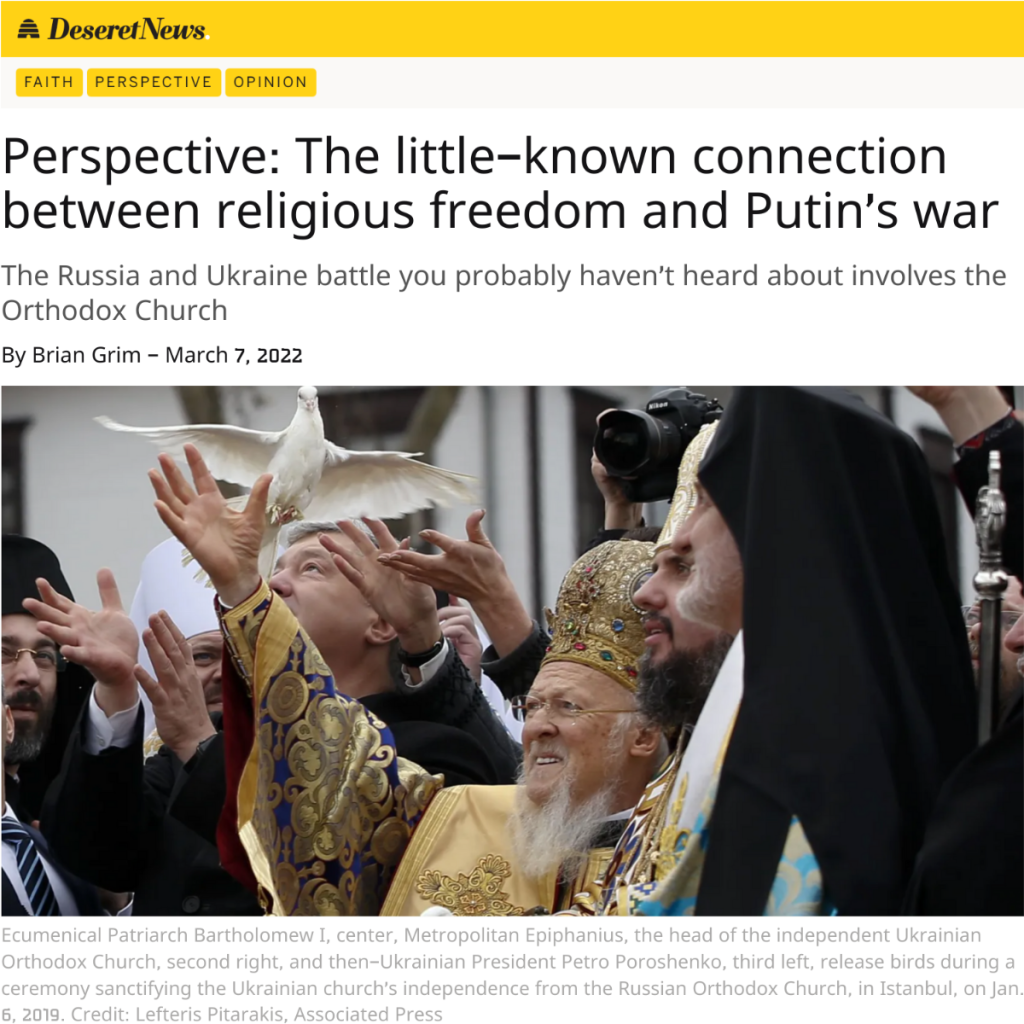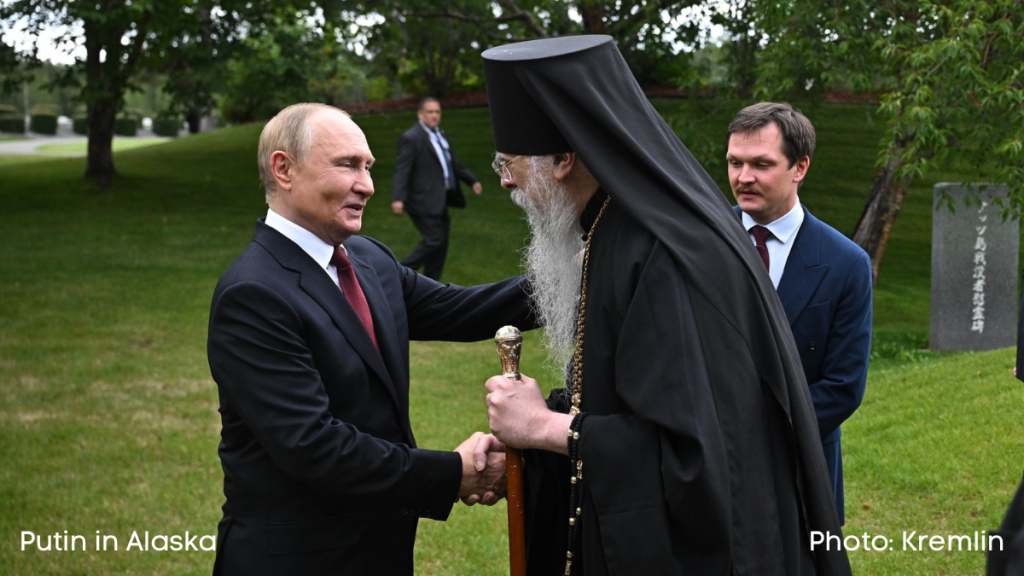Religious persecution largely results from government restrictions and social actions limiting religious freedoms (as we showed in The Price of Freedom Denied). However, we found one other direct cause of religious persecution: War.
As President Trump and world leaders seek to help bring an end to the Ukraine War, the religious elements cannot be ignored, including the way Vladimir Putin has marshaled the Russian Orthodox Church as an ally both inside and outside of Russia, including in the U.S.
After Putin walked off the stage with Trump in Alaska, he then drove across the base to the Fort Richardson National Cemetery. There, Putin met and exchanged gifts with Alexei, the American Orthodox Archbishop of Sitka and Alaska (pictured above and below). This understandably drew criticism. The Ukrainian Orthodox bishops in the U.S. called it a “betrayal of Christian witness” in the wake of the Russia-Ukraine war.
But having a religious meeting on the agenda is standard fare for Putin who frequently meets with Orthodox leaders in Russia and on his trips abroad (see photos of Putin’s visits to Orthodox churches in North Korea, China, Brazil, etc. below). Putin even reportedly raised defense of the Russian Orthodox (ROC) Church as a demand to be met in any peace settlement. For example, all organizations in Ukraine with ties to Russia, including the ROC, are banned.

Without taking religion into account, peace may not be possible. As I argued two years ago in Deseret News, one key finding from our ASR research speaks to this ongoing crisis is that war itself reinforces religious persecution and violence, creating a cycle of violence in which deterioration of religious freedom becomes difficult to stop.
If you missed last week’s newsletter, the them is worth repeating: religious freedom for all is a recipe for sustainable economic development – something the communities eventually recovering from war sorely need!
Brian Grim, Ph.D.
President, Religious Freedom & Business Foundation
Global Chair, Dare to Overcome

